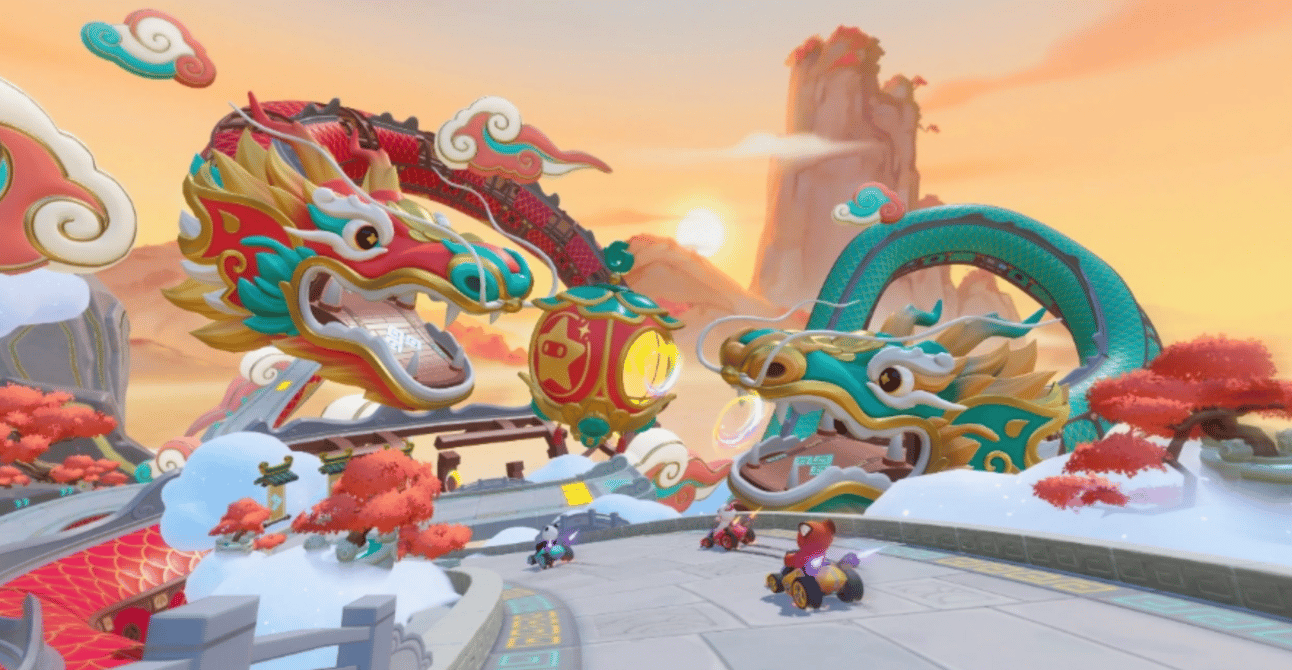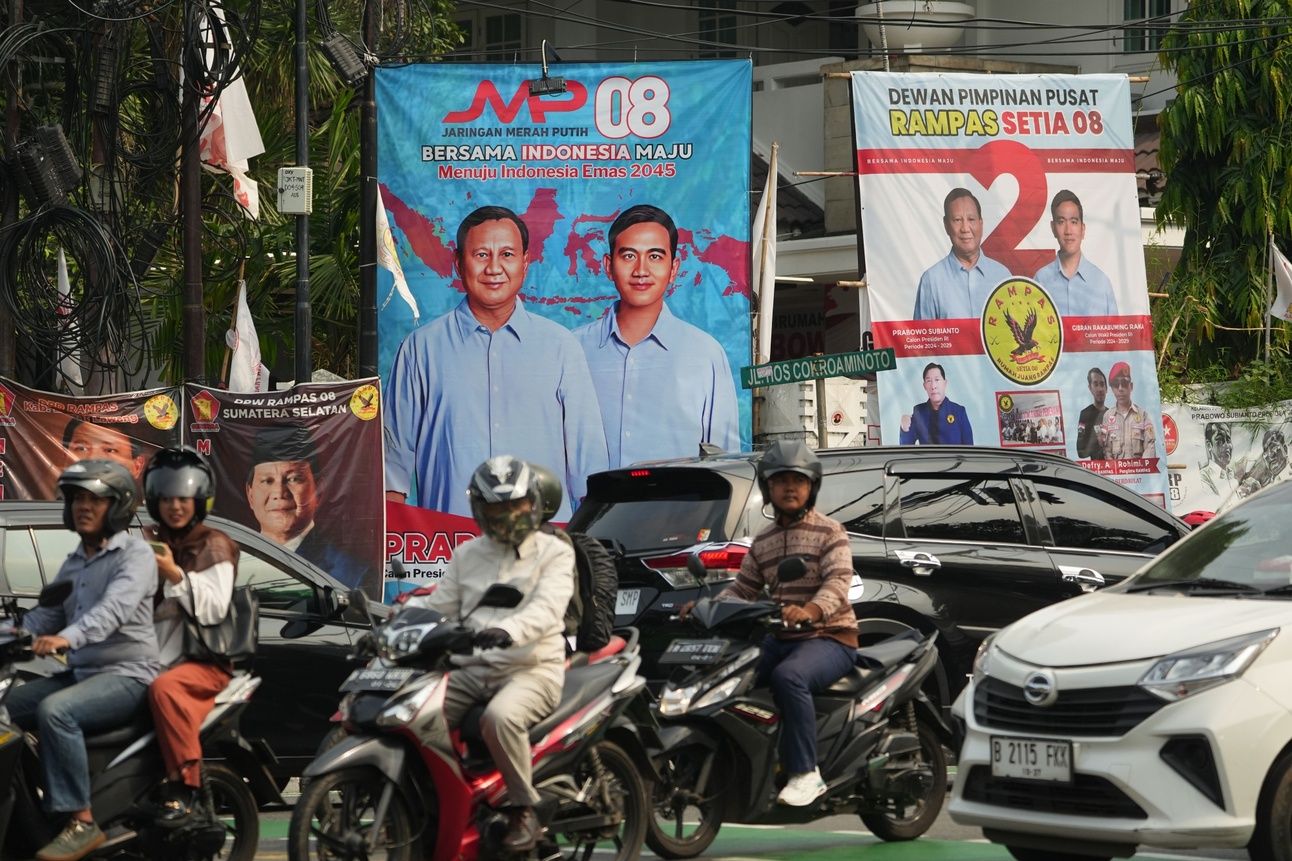- The Abacus
- Posts
- Can Tencent's Gaming Business Rise Quickly?
Can Tencent's Gaming Business Rise Quickly?
PLUS: Indonesia election; Chinese AR Glasses Maker fundraising

Tencent launches casual party game Dream Star following a similar title by NetEase.
Happy February y’all!
Before many people head back to their hometowns to celebrate the Chinese New Year, Tencent and ByteDance, two of China's tech giants, held their annual meetings last week. An interesting observation is that their CEOs have differing attitudes towards AI technology.
Pony Ma, CEO of Tencent, appears more conservative. He stated that Tencent's current focus should be on integrating its AI model into various business scenarios to enhance efficiency.
On the other hand, Liang Rubo believes ByteDance's response to AI technology has been too slow. It seems ByteDance is poised to transform into a super AI application factory in the coming year. To date, they have released six applications, but you can easily find who are their imitations.
Being conservative might not be a bad strategy for Tencent, especially considering the challenges they've faced with China's stringent gaming regulations. These range from systems designed to protect minors from addiction to the tightening of new game licenses. Today, let's delve into Tencent's gaming business, which constitutes over 30% of the tech giant's revenue.
Two weeks ago, Chinese regulators quietly removed a proposal aimed at reducing the amount of money people spend on video games. This move came after the draft proposal had severely impacted the stock prices of video gaming companies worldwide, affecting financial market stability.
According to Reuters, before China rescinded the proposal, an official associated with the government body overseeing its press and publications regulator — who was linked to the drafting of the rules — was also dismissed.
After releasing their third-quarter financial report last year, Tencent had clearly stated that gradually increasing the volume of new games would become the norm. However, this now appears to have been a reluctant admission.
During the annual meeting, Ma discussed the gaming business, saying, "...in the past year, we have faced significant challenges. We have found ourselves at a loss as our competitors continue to produce new products, leaving us feeling as if we have achieved nothing."
Ma's remarks come at a pivotal moment, as Chinese game developers miHoYo and NetEase have eclipsed Tencent with blockbuster titles like "Genshin Impact" and "Eggy Party." Although Tencent's previous successes, such as "Honor of Kings" and "PUBG Mobile," still generate significant revenue, its more recent offerings have not met expectations.
After these gaming policies, whether gaming companies can quickly rise again remains uncertain. AI, as a decisive factor in the next round of competition, has clearly impacted the production methods and cycles of gaming companies.
Wu Yangyang at YiMagazine:
"With generative AI — as this technology becomes more definitive, the gap between gaming and the 'metaverse' seems to widen. Even in a 'metaverse' constructed by head-mounted displays like the Apple Vision Pro, games developed by humans could potentially be replaced, as everything can be generated."
Tencent Gaming's global reach is also strong, beginning with a 2008 investment in Riot Games and extending to Epic Games, Activision Blizzard, and Discord, marking over 15 years of strategic investments.
However, the global gaming industry is facing a downturn. On January 22, Riot Games announced in a blog post plans to lay off 530 employees, about 11% of its total global workforce.
Asia Must Reads
Indonesia’s election go viral

Credit: Bloomberg
Driving the news: Prabowo Subianto, an Indonesian presidential candidate, has posted clips of himself embracing TikTok's most popular trends to attract the 204 million young voters.
Why it matters: Social media campaigns are crucial for politicians competing for votes from young people in elections. Platforms like TikTok, with the politainment, the spread of fake news and hoaxes, and the purchase of social media hacks to praise politicians, significantly impact the election process in the world’s third-largest democracy. (The Economist)
Bonus
Chinese AR Glasses Maker Xreal has raised $60 million from a key supply chain partner to compete with Apple. Reports indicate the company holds about half of the market share for AR-only devices. The founder aims for Xreal to go public in the US within two years. (Mark Gurman / Bloomberg)
South Korean AI chip startup Rebellions has secured $124 million to develop its new AI Rebel chip with Samsung.( Kate Park / Techcrunch)
China is expanding its foundational chip production capacity. Chris Miller, author of "Chip War," argues that Western nations need a strategic plan. (Chris Miller)
Europe's leading chipmaker, Infineon, is ramping up hiring in India and Vietnam, highlighting the growing significance of these regions in the global semiconductor and tech supply chains. (Cheng Ting-Fang / Nikkei Asia)
In the first six months since starting the approval process, China has greenlit over 40 artificial intelligence (AI) models for public use, demonstrating its ambition to narrow the AI development gap with the U.S. (Security Times)
Beijing’s new guidelines aiming for breakthroughs in at least 100 core cutting-edge technologies by 2025, including GPUs, quantum computing, humanoid robots and brain-computer interfaces.
India warned to social media companies will be held accountable for AI-generated “deepfakes” posted on their platforms in compliance with “very clear and explicit rules” as India prepares for a general election this year. (John Reed and Hannah Murphy / FT)
Some Chinese automakers are postponing deliveries of flagship models because of delays in receiving key components, including computing units made by tech giant Huawei. (Reuters)
Japan offers $300 million for optical chip tech development. The chip industry aims to harness light for sending signals, speeding up transmission and cutting power consumption. (Reuters)
Reply